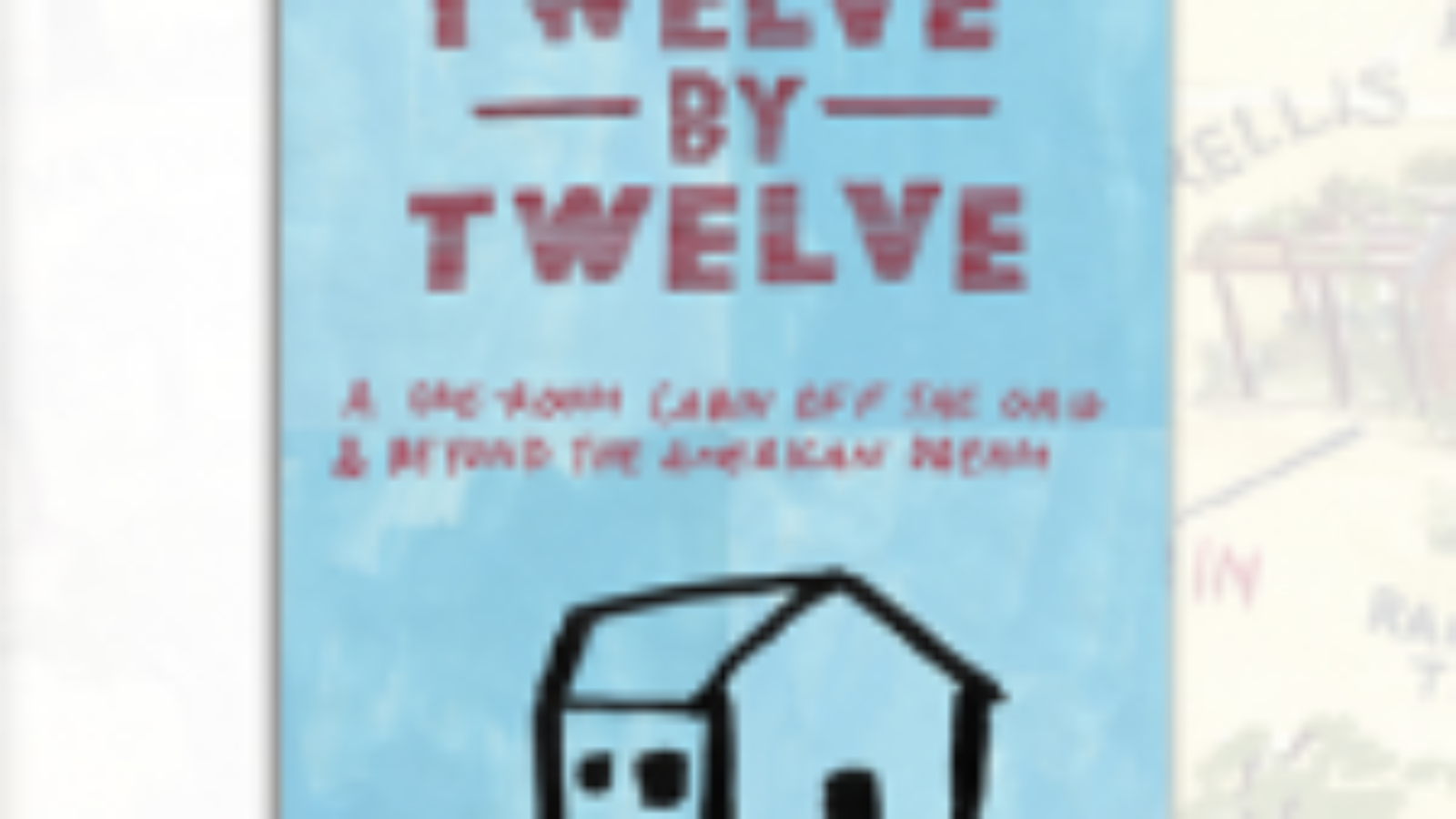William Powers lived in the heart of the Amazon rainforest and Liberia at the height of civil war, but the setting of his latest book lies in less exotic territory: "Adams County", North Carolina (Powers changes names and locations throughout). It was here, in 2007, that Powers discovered an eccentric community of sustainable farmers. He met them through Dr. Jackie Benton, an MD who keeps her income below $11,000 a year and lives in a structure so small that the state of North Carolina doesn’t recognize it as a house. She does this, Powers explains, to keep her tax money out of the government’s war chest. Powers got to know Dr. Benton when, after their first meeting, he accepted her offer to house sit—or, really, shack sit. The structure has no electricity or running water and is 12 feet long and 12 feet wide. Thus begins Powers’ self-described "internship at Walden Pond."
For Powers, recently returned from living abroad and grappling with an intense disillusionment with American culture, Dr. Benton embodies enlightened living. She’s happy with so little, and lives entirely off her two acre farm—from the rainwater she bathes in to the garden that feeds her—without upsetting nature’s balance. Even in absentia, Dr. Benton serves as Powers’ spiritual guide through the note cards scattered around her shack marked with koans such as "The Strenuous Contours of Enough" and "Mindfulness." Powers does a lot of deep thinking during the 40 days he lives in Dr. Benton’s home.
Like Thoreau, Powers cheats just a little, receiving visitors and even accepting rides in their cars. The book is the better for it—it’s the characters he meets on his adventures around Adams County that are the best part of the story. Jackie’s neighbors include the Thompson family, who moved to Jackie’s neighborhood from a dangerous urban trailer park in the Research Triangle to raise their raucous children—and an equally raucous assortment of birds—in more wholesome environs. There’s José, who immigrated illegally to the U.S. and now sells Mexican handcrafted furniture out of his Habitat for Humanity-built house, and Paul Sr. and Jr., a father and son who left suburbia to live in a compound of 12x12s like Dr Benton’s. "The less we do the more time to be," Paul Jr. tells Powers.
As isolated and utopian as Jackie’s world can seem, the outside world encroaches. There is racial tension between Jackie’s white and Latino neighbors. When the wind blows in a certain direction, foul odors from a Gold Kist chicken plant waft over Jackie’s property. And all around Adams County, there is poverty. Powers vents frustration but he also endeavors to offer solutions for the problems that surround him. Drawing from his experiences in the developing world and amongpeople like the Thompsons, Powers finds that some of what the developed world regards as poverty can be bearable—even preferable to material wealth. There are lessons to be learned from the conservation, the sense of community and the "leisure ethic" found in the world’s subsistence communities. Other times, Powers’ prescription is merely to take notice: "There’s a parallel between how we deal with race and how we deal with ecocide," he writes, "In both cases, we look away. This denial weighs heavily on our individual and collective consciousness. Just being aware reduces the burden."
Books in this genre (social criticism, environmental activism) often fall into the same trap—while the thoughts are deep and often profound, they lack feasible or appealing suggestions for how the average person can lead a more environmentally conscious life. As idyllic as Powers makes 12×12 shack living sound, its electricity, plumbing, and sanitation situations—or lack thereof—are unlikely to strike most readers as adoptable practices. But he doesn’t expect them to. Rather than composting toilets, Powers advocates for a paradigm shift. In the end, Powers finds that he can live with less, but he can’t live without air travel. The most lasting effects of his 12×12 experience are philosophical. Back to his usual life, traveling the world as an aid worker, Powers finds himself applying Jackie’s mantra of "See be do" (not unlike Gandhi’s "Be the change you want to see in the world"). The heightened consciousness he received in rural North Carolina carries him across continents.
into the same trap—while the thoughts are deep and often profound, they lack feasible or appealing suggestions for how the average person can lead a more environmentally conscious life. As idyllic as Powers makes 12×12 shack living sound, its electricity, plumbing, and sanitation situations—or lack thereof—are unlikely to strike most readers as adoptable practices. But he doesn’t expect them to. Rather than composting toilets, Powers advocates for a paradigm shift. In the end, Powers finds that he can live with less, but he can’t live without air travel. The most lasting effects of his 12×12 experience are philosophical. Back to his usual life, traveling the world as an aid worker, Powers finds himself applying Jackie’s mantra of "See be do" (not unlike Gandhi’s "Be the change you want to see in the world"). The heightened consciousness he received in rural North Carolina carries him across continents.
—Caroline Soussloff
Read more:
– William Powers on declaring independence from stuff.
– William Powers’ blog, Texture.
